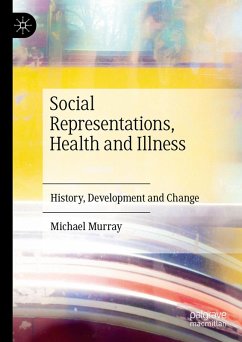
The Social Organization of Best Practice (eBook, PDF)
An Institutional Ethnography of Physicians' Work
Versandkostenfrei!
Sofort per Download lieferbar
40,95 €
inkl. MwSt.
Weitere Ausgaben:

PAYBACK Punkte
20 °P sammeln!
This book explores how best practice for acute stroke care was developed, translated and taken up in medical practice across various sites in the province of Ontario using institutional ethnographic research. Institutional ethnography, an approach developed by Dorothy E. Smith, builds on Smith's understanding of the social organization of knowledge, allowing for an examination of the complex social relations organizing people's experiences of their everyday working lives.This work thereby makes visible some of the assumptions and hidden priorities underlying the emphasis given to translating s...
This book explores how best practice for acute stroke care was developed, translated and taken up in medical practice across various sites in the province of Ontario using institutional ethnographic research. Institutional ethnography, an approach developed by Dorothy E. Smith, builds on Smith's understanding of the social organization of knowledge, allowing for an examination of the complex social relations organizing people's experiences of their everyday working lives.
This work thereby makes visible some of the assumptions and hidden priorities underlying the emphasis given to translating scientific knowledge into medical practice. In this study, the discourses of both evidence-based medicine and knowledge translation, purportedly designed to improve patient care, come into view as managerial tools that directed healthcare resources toward academic hospitals rather than community sites where the majority of patients receive care. These models institutionalize inequities in access to care while claiming to resolve them.
This work thereby makes visible some of the assumptions and hidden priorities underlying the emphasis given to translating scientific knowledge into medical practice. In this study, the discourses of both evidence-based medicine and knowledge translation, purportedly designed to improve patient care, come into view as managerial tools that directed healthcare resources toward academic hospitals rather than community sites where the majority of patients receive care. These models institutionalize inequities in access to care while claiming to resolve them.
Dieser Download kann aus rechtlichen Gründen nur mit Rechnungsadresse in A, B, BG, CY, CZ, D, DK, EW, E, FIN, F, GR, HR, H, IRL, I, LT, L, LR, M, NL, PL, P, R, S, SLO, SK ausgeliefert werden.












